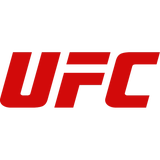
For Nate Diaz, taking a stand on pay is fair play

Nate Diaz wants to get paid, so much so that the mercurial UFC lightweight actually took his case to the media. In an unfiltered interview with MMAFighting on Tuesday, the normally press-averse Diaz blasted the UFC in the kind of way which we never see from active fighters.
His takeaway message was "pay me or let me go," but his delivery was much stronger.
A few quick excerpts ...
"I'm over here getting chump change."
"...it's too embarrassing for me to even fight again for the money they're paying me."
"I don't get paid s---, and I'm about to tell the world."
"If I can get released, I can go fight somewhere and make some money."
Money complaints have been around since the first paycheck was handed out, but what makes Diaz's stand out is its force. It's not so much a complaint as it is a demand, suggesting that Diaz is in for the long haul.
Good for him for taking his shot at a better life. Despite the fact that the two sides have a signed contract, renegotiations happen all the time. In some ways, going public may be his best option to advance his cause. Recently, I spoke with Pepperdine University associate professor of economics and sports economist Paul Gift about fighter pay, and asked him if fighters have legit gripes about pay, what can they do?
"My economist answer is that when you get the public on your side, that tends to help your cause," he said. "Popular retired fighters who have that power and ability to speak would help them as well. To the individual fighter, the way you do it is by getting yourself more popular and higher up the ranks. That will give you more negotiating power when the time comes."

Diaz's value isn't just as a fighter, it's also as a showman.
The time has apparently come for Diaz, who according to his recent interview, currently has a $60,000 base salary for a fight and a $60,000 win bonus. That's decent money for a UFC lightweight, but context is everything, and it's worth noting that he's competed for the promotion for seven years to get to those numbers.
In that time, he's met most of Gift's criteria. He's competed 19 times. Six of those times he's been the main event, twice he's been the co-main event, and in all but two occasions, he's been featured on the main card. The two times he wasn't -- at UFC 111 and UFC 129 -- he was featured on the final televised Spike prelim, a position the promotion values as a potential pay-per-view teaser. His current ranking after his most recent win over Gray Maynard is No. 6.
Those numbers clearly illustrate he's seen as a valuable asset for the organization, bolstering his argument. UFC president Dana White countered by noting that Diaz signed a new contract about 18 months ago, and seemed happy to do so. But the landscape has shifted since then. Specifically, Diaz's teammate and close friend Gilbert Melendez, ranked just four spots ahead of him on the UFC ratings, was the subject of a bidding war, and accepted a contract which is believed to include the highest base salary of any UFC lightweight. Even prior to that windfall, Melendez's base was $175,000, just less than triple Diaz's base.
This is where his critics will point to other numbers: his won-loss percentage. Over his last eight fights, Diaz is just 4-4. In his last three, he's just 1-2, including a title fight loss which took his career off the pay-per-view earning track, as well as his first-ever TKO loss.
White said the same, suggesting that attempting to renegotiate after losing two of three was a crazy argument. But that fails to account for the success of his headlining slots in that short span. The TUF 18 Finale drew 1,129,000 viewers, a rating that was seen as a blockbuster number after the series averaged 632,000 viewers per episode. It remains the third highest rating for a FOX Sports 1 UFC event. His other main-event slot, against Ben Henderson in Dec. 2012, drew 4.4 million viewers, a number that led White to remark that, "We killed it in every demo."
So clearly his presence has a benefit beyond winning and losing, and his market value should reflect that. Like his brother Nick, Nate Diaz adds an element of unpredictability that forces people to care and to take notice. That's a crucial element to establishing individual value. As Gift argues, it's likely the major names who have a real case when it comes to pay gripes, even over the prelim fighters who are occasionally fighting for four figures.
"Use Georges St-Pierre as an example," he said. "Let's say you have GSP on a fight card, and then imagine the same fight card but GSP withdraws from it. Think about how the value for everybody drops. Fans, people who were going to go to the show, people who were going to watch it. The promotion. He has a really high incremental value. But someone fighting in the No. 8 spot? If he withdraws from his fight, it's almost meaningless. It's sad to say that, but as an economist, it's a fact."
St-Pierre, is of course, an outlier. Popular and talented, and the biggest consistent PPV draw of the last half-decade. But Diaz has clearly served a major purpose, too. In a sport that is heavily dependent on stars to populate events, the UFC's booking of him illustrates they see him as one.
White is fond of noting how small the window is for Octagon success. It's small for getting paid, too. Diaz's is closing, and he's taking his shot. Nothing wrong with that.
